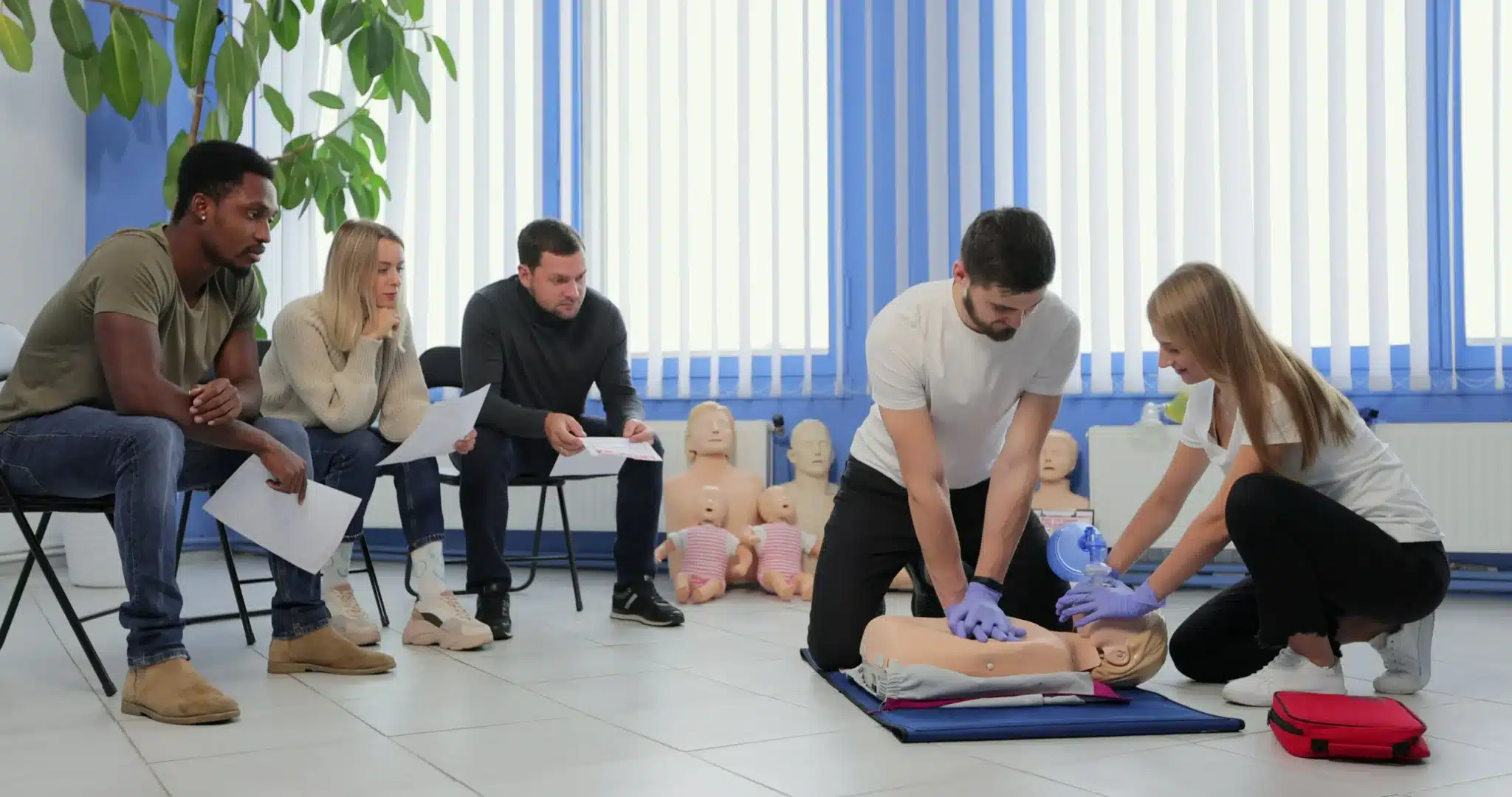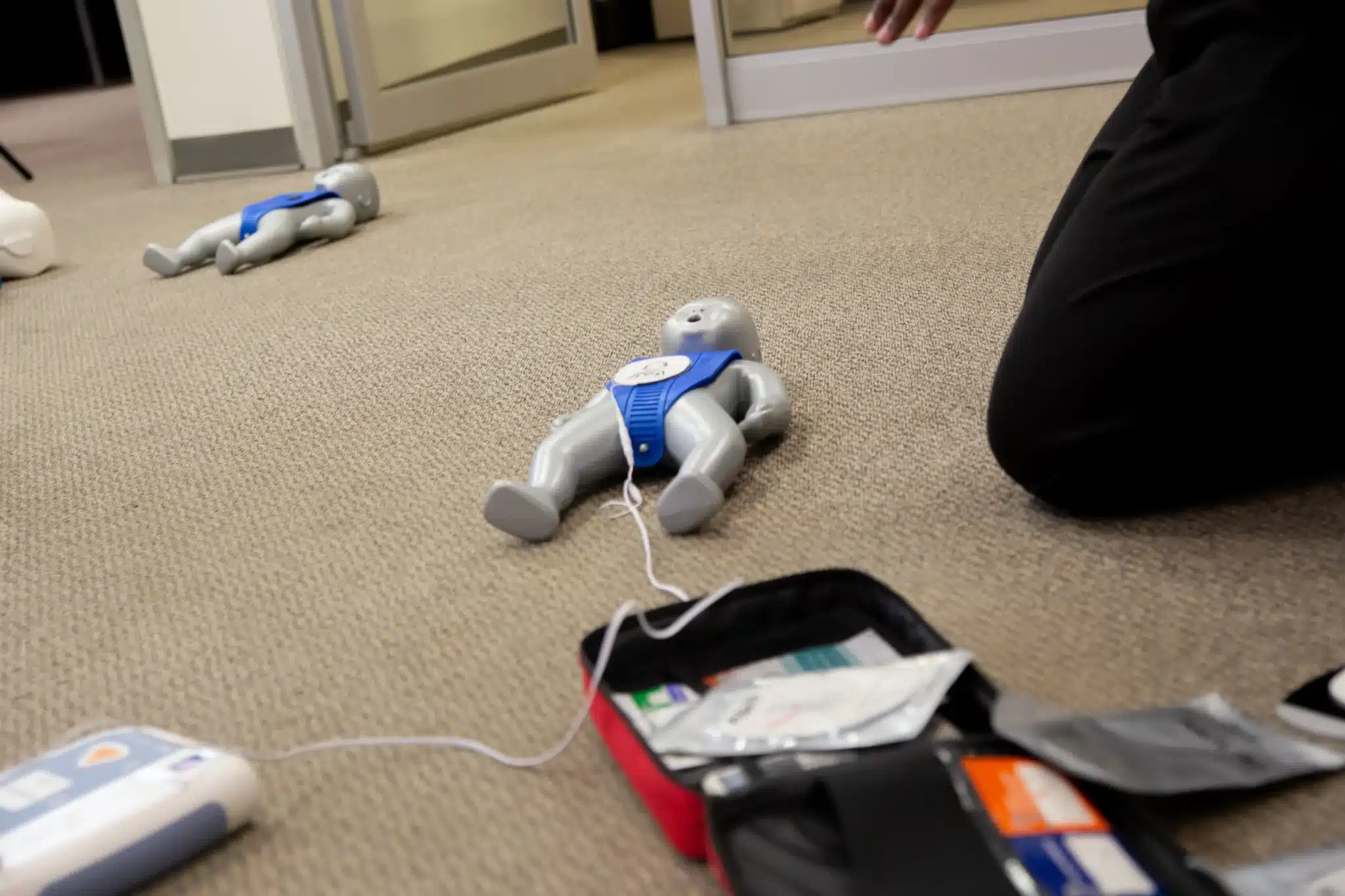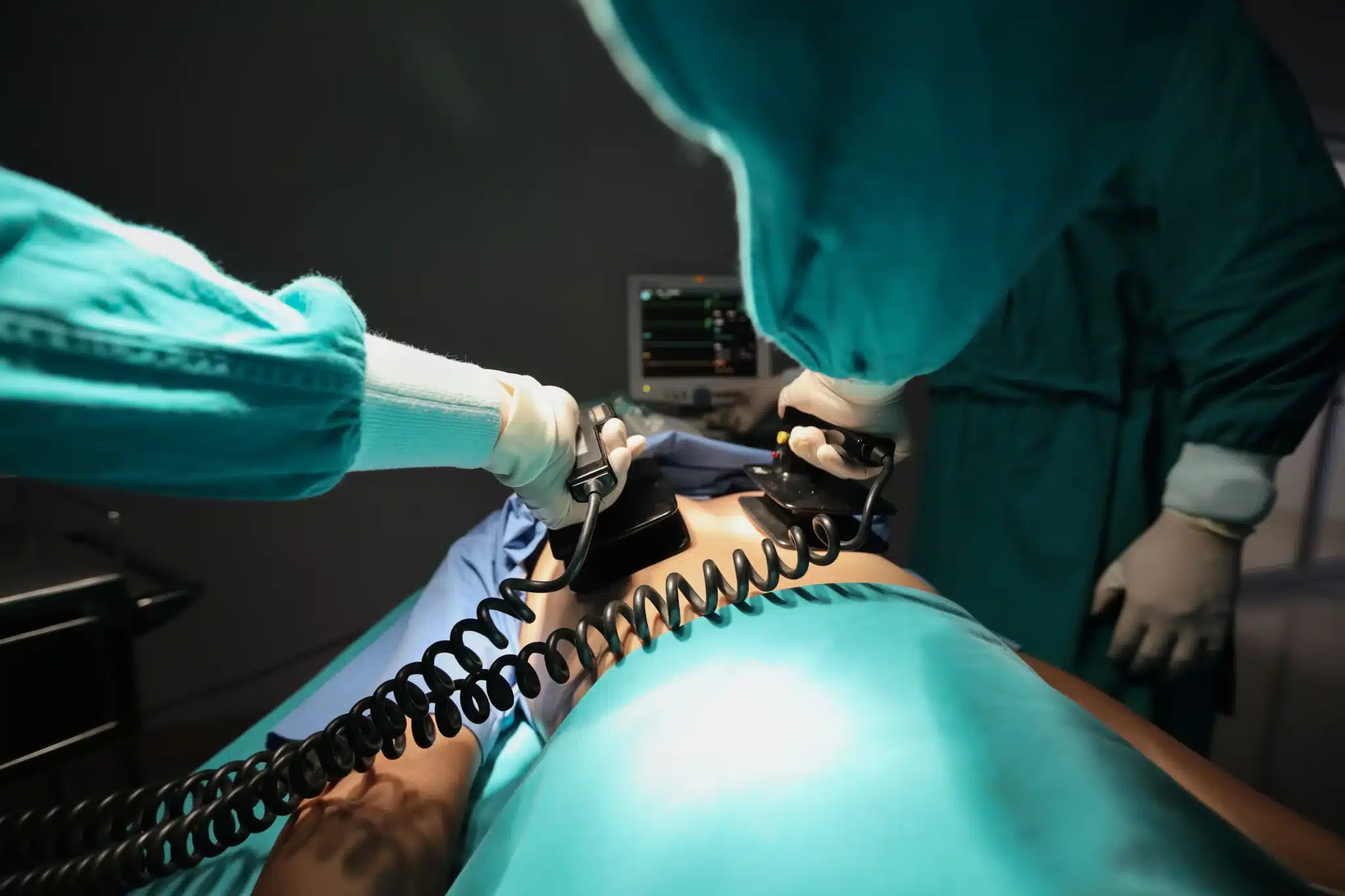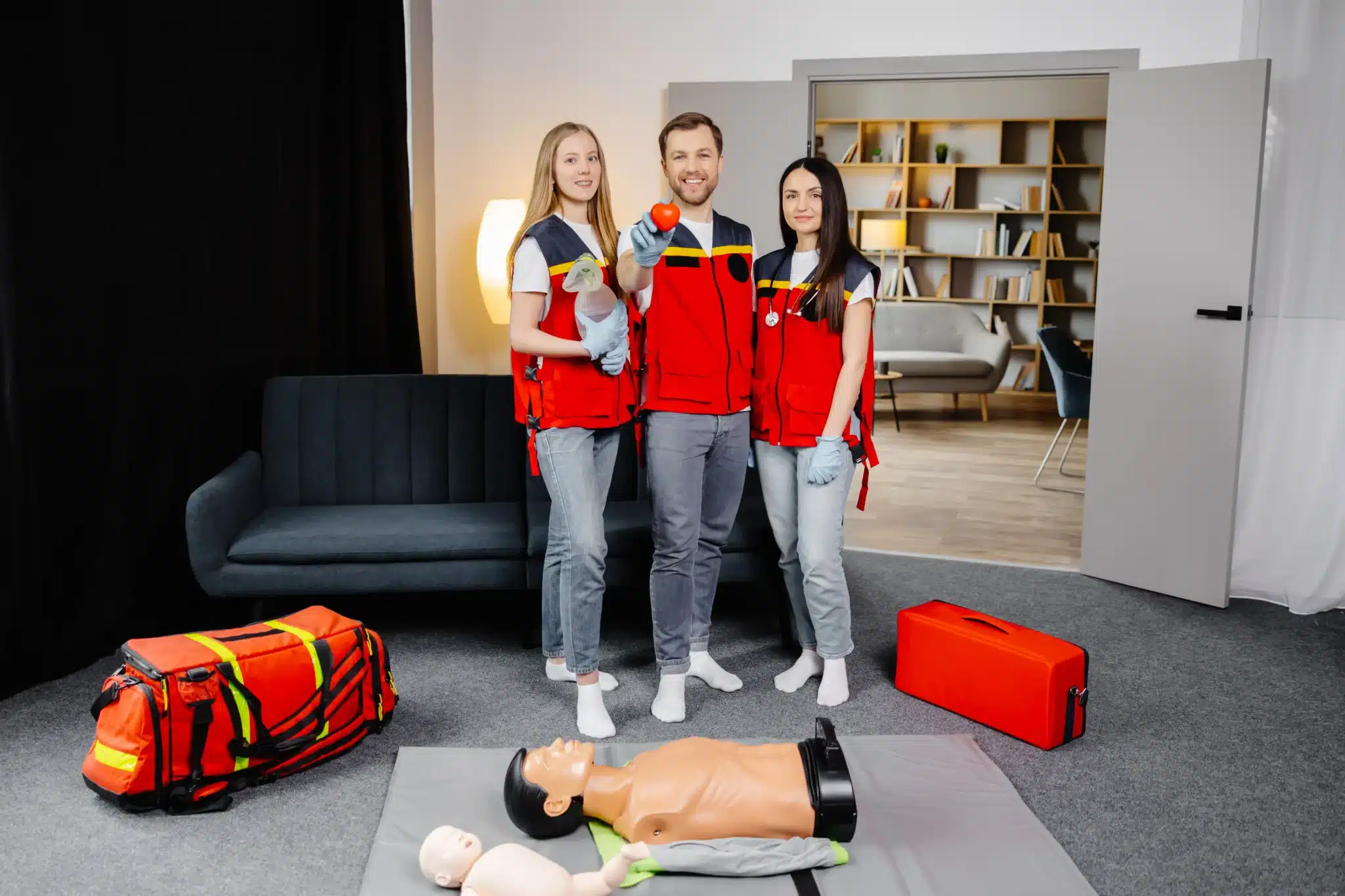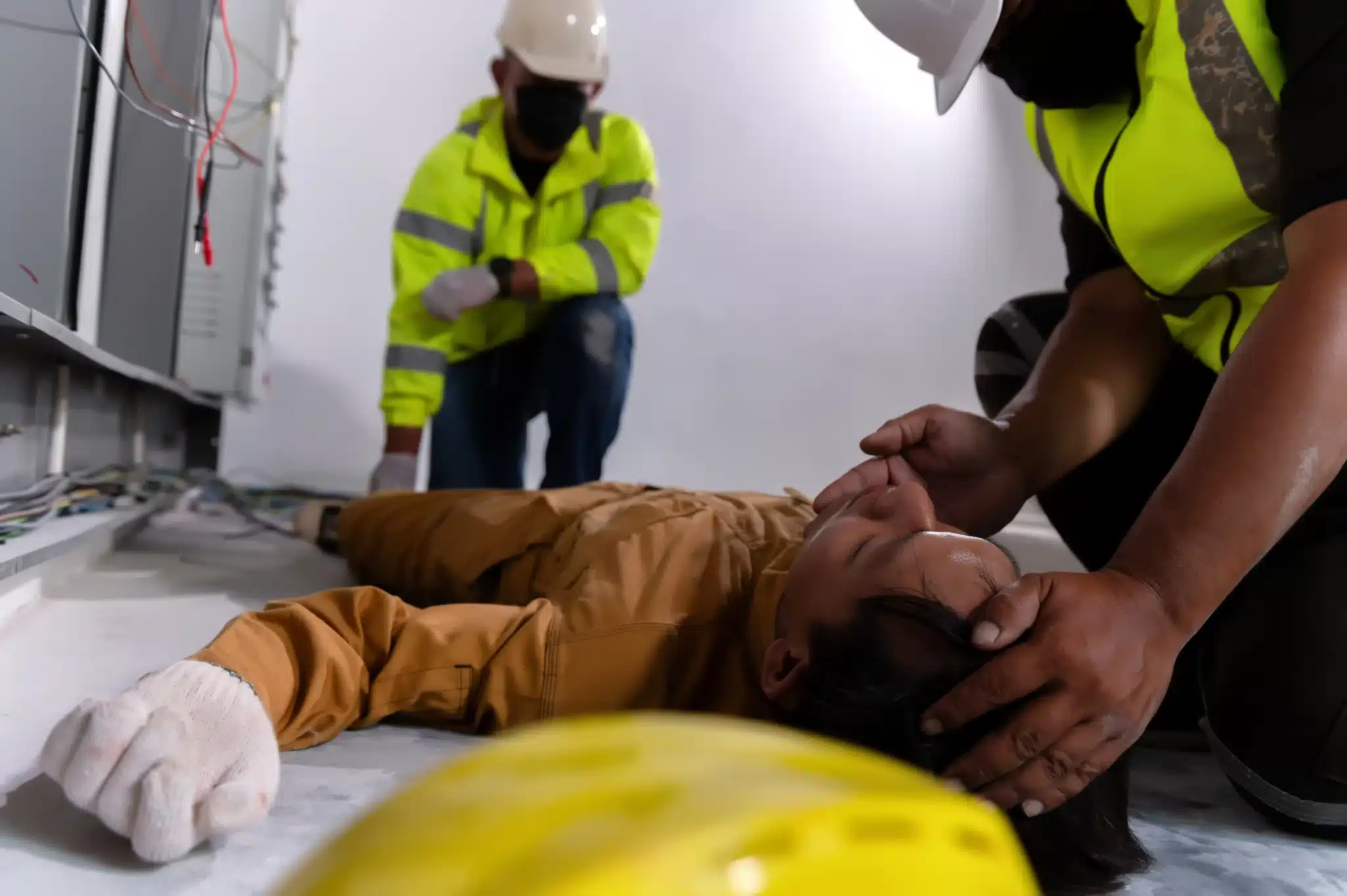Working in healthcare in San Jose, you know how quickly skills can fade, especially crucial ones like CPR. Regular CPR training is essential, but who has time for lengthy recertification courses? That’s the beauty of Resuscitation Quality Improvement (RQI). RQI offers a smarter, more efficient way to keep your CPR skills sharp, fitting seamlessly into your busy schedule. This innovative program focuses on short, frequent practice sessions and personalized learning, ensuring you’re always ready for a cardiac emergency. This article explores the benefits of RQI in San Jose, how it differs from traditional CPR training, and why it’s becoming the preferred choice for healthcare professionals in the area. We’ll also cover where to find RQI training in San Jose, associated costs, and how to maintain your certification.
Key Takeaways
- RQI keeps CPR skills sharp: Frequent, short practice sessions make it easier to maintain competency and confidence compared to traditional CPR training.
- Choosing the right provider is crucial: Consider factors like location, schedule, and student reviews when selecting an RQI training center. Make sure they are an AHA Training Center for a valid certification.
- Maintaining RQI is straightforward: The subscription model with regular training and online components simplifies staying current with AHA guidelines and keeping your skills up-to-date.
What is RQI and Why Does it Matter in San Jose?
Keeping your CPR skills sharp is critical, especially in a bustling city like San Jose. In emergencies, seconds count, and knowing how to perform high-quality CPR can make all the difference. That’s where Resuscitation Quality Improvement (RQI) comes in. This innovative program helps healthcare professionals and other CPR-trained individuals in San Jose maintain their life-saving skills through regular practice and assessment.
What is the RQI Program?
The RQI program, developed by the American Heart Association, offers a fresh approach to CPR training. Unlike traditional CPR courses that often involve lengthy sessions and infrequent renewals, RQI focuses on short, frequent practice sessions. Think of it as a “little and often” method to keep your skills fresh. RQI incorporates online learning modules, realistic simulations, and regular assessments to reinforce proper techniques and build confidence. It covers the same core content as traditional AHA training but delivers it in a more manageable and engaging way. You can explore our BLS course for more information on Basic Life Support certification.
Why Maintain CPR Skills?
Studies show that CPR skills decline significantly within months of initial training. Regular practice is key to retaining these crucial skills and performing them effectively during a real emergency. Consistent reinforcement through programs like RQI helps combat this skill decay and ensures you’re always prepared to respond. For those working in healthcare settings in San Jose, maintaining top-notch CPR skills is not just important—it’s essential.
How RQI Differs from Traditional CPR Training
RQI stands apart from traditional CPR training with its unique low-dose, high-frequency approach. Instead of one long training session every two years, RQI uses shorter, more frequent skills sessions distributed throughout the year. This method helps solidify skills and improve retention. RQI also incorporates adaptive learning technology, tailoring the training to each individual’s needs and progress. This personalized approach ensures you focus on the areas where you need the most practice. For more information about RQI or to discuss training options for your team, please contact us. We also offer discounts for group CPR training.
Find RQI Courses and Providers in San Jose
Finding the right RQI course and provider is crucial for healthcare professionals in San Jose. This section breaks down the different RQI certifications available and highlights some reputable training centers. For those located near Fremont, Newark, or San Jose, finding a convenient location is easier than ever.
BLS RQI
The American Heart Association RQI (Resuscitation Quality Improvement) program offers a streamlined path to BLS certification. It’s a popular choice for medical professionals seeking a modern and efficient way to obtain their official AHA BLS cards. For more information on RQI classes in San Jose, check out San Jose CPR Classes.
ACLS RQI
RQI isn’t just for BLS; it also provides a flexible and convenient method for maintaining ACLS credentials. The program helps staff stay up-to-date with their required AHA certifications. You can find a helpful overview of the RQI program from the American Heart Association.
PALS RQI
PALS certification is also covered under the RQI program. Designed for mastery of high-quality CPR skills, RQI offers quarterly training to ensure healthcare providers maintain their PALS certification. Fremont CPR Classes offers more information on local RQI courses.
Top RQI Training Providers
Here are a few training providers offering RQI courses:
Fremont CPR Classes
Fremont CPR Classes offers RQI certification for BLS, ACLS, and PALS. They are known for providing high-quality instruction and convenient scheduling options for those in and around Fremont, Newark, and San Jose. They also offer discounts for group classes.
San Jose CPR
San Jose CPR offers RQI training to help healthcare professionals improve their emergency response skills. They focus on providing comprehensive training aligned with AHA guidelines.
San Jose CPR Certification
San Jose CPR Certification provides AHA-certified RQI courses for BLS, ACLS, and PALS certifications. They are a dedicated resource for healthcare providers seeking RQI training in San Jose.
Northcentral Technical College
Northcentral Technical College offers an AHA-approved RQI BLS course that covers adult and pediatric CPR, focusing on the needs of professional caregivers.
Surefire CPR
Surefire CPR offers various BLS certification courses, including RQI options, designed to fit different schedules and learning preferences. They emphasize the importance of BLS training for improving patient outcomes.
Enroll in RQI Training: Steps to Certification
Choose the Right Course
The American Heart Association RQI (Resuscitation Quality Improvement) program offers a streamlined path to certification for healthcare professionals. RQI programs cover BLS, ACLS, and PALS. Choosing the right course depends on your specific job requirements and professional goals. For many healthcare providers in San Jose, RQI is the preferred method for maintaining these essential certifications. Learn more about the BLS and ACLS courses offered by Fremont CPR Classes.
Online vs. In-Person Training
RQI training offers flexibility with both online and in-person options. You can complete the online portion at your own pace, typically in a few hours, from the comfort of your home. This makes it easier to fit the training into your busy schedule. In-person skills sessions are then scheduled separately to demonstrate competency. Learn more about RQI training options.
Meet Prerequisites
Before enrolling in an RQI course, ensure you meet any prerequisites. If your job requires BLS certification, you’ll likely need to pursue your CPR training through the RQI program. Check with your employer or review the RQI program FAQs for specific requirements.
Schedule Your Training
Finding a convenient training time is easy with providers like Fremont CPR Classes. They offer a variety of courses seven days a week, serving Fremont, Newark, and San Jose. Contact them to find a class that fits your availability and begin your RQI journey. Explore group discounts if you’re training with colleagues. For additional training providers, check their Northern California CPR directory.
RQI Costs and Pricing
RQI training costs in San Jose vary based on the provider and the specific course you need—BLS, ACLS, or PALS. The American Heart Association (AHA) RQI program is known for its streamlined training and often has competitive pricing. Generally, RQI course fees are comparable to standard CPR and first-aid training. For more information on RQI offerings in San Jose, take a look at these RQI classes.
Typical Fees
Expect fees to differ between providers, but they typically align with industry standards for CPR and first-aid training in the area. It’s always a good idea to check directly with the training center for the most up-to-date pricing. San Jose CPR Certification offers various CPR courses and is a good starting point for your research.
Group Discounts and Packages
If you’re coordinating training for a group, many San Jose training centers offer discounts. This can significantly lower the per-person cost, making it more budget-friendly for businesses or healthcare facilities to certify their staff. Contact providers directly to explore group options and find the best fit for your team.
Compare Provider Costs
Don’t just focus on the sticker price when comparing RQI providers. Consider the overall value. Some providers include extras like online materials or post-training support. Bay Area CPR offers a helpful overview of various classes and costs in the area. This allows you to weigh your options based on your budget and training needs. Remember to factor in additional resources and support when making your decision.
Benefits of RQI Training
RQI training offers several advantages over traditional CPR certification courses. It’s designed to improve your skills and boost your confidence in life-saving situations. Here’s a closer look at the key benefits:
Quarterly Skill Refreshers
Traditional CPR training often involves lengthy sessions with annual or even biannual recertification. This can lead to skill decay. RQI’s low-dose, high-frequency approach tackles this issue head-on with quarterly skill refreshers. These shorter, more frequent practice sessions help maintain muscle memory and keep your skills sharp, ensuring you’re always ready to respond effectively. The RQI program emphasizes consistent practice.
Adaptive Learning Technology
RQI uses adaptive learning technology to personalize your training. The RQI Simulation Station and learning modules adapt to your individual learning pace and style. This targeted approach helps you focus on areas where you need the most practice, leading to greater competency and confidence. The program follows the 2020 AHA Guidelines for BLS and EMS, integrating the latest science into your training.
Comprehensive Assessments
RQI training goes beyond just physical skills. The program incorporates cognitive learning modules, including educational videos, simulated patient cases, and multiple-choice questions. These comprehensive assessments test your knowledge and decision-making abilities in realistic scenarios, better preparing you to handle real-life emergencies.
Simulation Station Practice
Hands-on practice is crucial for mastering CPR. RQI provides realistic training experiences through its Simulation Station. This technology offers real-time feedback on your compressions and ventilations, helping you refine your technique and achieve proficiency. Research shows how effective simulation training can be for skill development and retention.
Improve Patient Outcomes
Ultimately, the goal of CPR training is to improve patient outcomes. By maintaining high-quality CPR skills, you significantly increase a person’s chances of survival during cardiac arrest. The RQI program helps healthcare providers consistently deliver effective CPR, leading to better patient care.
Flexible Learning
RQI understands the demands of a busy schedule. The program offers flexible learning options, allowing you to complete training at your own pace and convenience. Whether you prefer online modules or in-person sessions, RQI provides a convenient way to obtain and maintain your AHA credentials.
Prepare for RQI Training
Getting ready for your RQI training doesn’t have to be stressful. With a little preparation, you can walk in feeling confident and ready to learn. Here’s how to get started:
Gather Materials and Resources
RQI training uses a blended learning approach, combining online modules with hands-on practice. You’ll need access to a computer and reliable internet for the online portion. The RQI Program provides the necessary learning materials, including videos, simulations, and practice questions. Check with your chosen provider, like Fremont CPR Classes, to see if they offer any supplementary resources. A notebook and pen can also be helpful for taking notes. For more information about what’s included, review the RQI Program Overview.
Pre-Course Study Tips
One of the best ways to prepare is to complete the online modules before your in-person skills session. This allows you to familiarize yourself with the core concepts and focus on the practical skills during the hands-on portion. Set aside a few uninterrupted hours to work through the online content. If your job requires BLS certification, completing the online portion beforehand is especially important, as highlighted in these RQI FAQs. The San Jose CPR Classes website offers additional tips for RQI classes.
What to Expect on Training Day
On training day, arrive a few minutes early to get settled. The session will typically begin with a review of the online modules, followed by hands-on practice at the RQI skills stations. You’ll work with realistic mannequins to practice compressions, ventilation, and other essential CPR techniques. Instructors will guide you through each activity, providing feedback and answering questions. The training follows a structured schedule of perpetual quarterly sessions, ensuring consistent and up-to-date instruction. For a more detailed understanding of the training process, refer to the RQI FAQs.
Common RQI Concerns and FAQs
It’s normal to have questions about a new training program. Let’s address some common concerns about RQI certification.
Course Duration and Time Commitment
RQI training is designed to be flexible and fit into your busy schedule. Instead of one long course, the program uses short, quarterly skills sessions. These sessions include two online learning modules and four mannequin skill activities performed at RQI Skills Stations. This approach lets you refresh your skills regularly without a huge time commitment. You can learn more about the program structure from the RQI FAQs.
Certification Validity and Job Requirements
If your job requires BLS certification, you’ll likely need to complete CPR training through RQI. This ensures you maintain up-to-date skills and adhere to the latest American Heart Association guidelines. Check with your employer to confirm their specific RQI certification requirements.
Physical Limitations and Accommodations
RQI training is designed to be accessible to everyone. If you have physical limitations that might prevent you from completing certain aspects of the training, talk to your RQI provider or employer. They can help you find reasonable accommodations to ensure you can still participate and achieve certification. The RQI FAQs offer further guidance on accommodations.
Where to Practice Skills
RQI training blends online learning with hands-on practice. The online portion includes educational videos, simulated patient cases, and multiple-choice questions. You’ll then practice your skills on a mannequin at designated RQI Skills Stations, often located within your workplace. This combination of online and in-person training helps you develop a strong understanding of CPR techniques. Learn more about the RQI program components and how they work together.
Choose the Right RQI Provider
Finding the right RQI provider is key to a positive and effective learning experience. Whether you’re a nurse in San Jose or a medical assistant in Fremont, the right training center can make all the difference in your comfort level and skill retention.
Factors to Consider
First, think about what’s important to you. Do you prefer a smaller class or a larger group? Is proximity to your home or work a priority? Consider the provider’s schedule and whether they offer weekend or evening courses to fit your availability. Also, check if the training center is an official American Heart Association Training Center, like Fremont CPR Classes, which ensures you’ll receive a valid AHA certification card. A convenient location, like our training centers serving Fremont, Newark, and San Jose, can also be a deciding factor.
Read and Interpret Reviews
Student reviews offer valuable insights into a training provider’s strengths and weaknesses. Look for comments about the instructor’s teaching style, the quality of the equipment, and the overall learning environment. Were students satisfied with the support they received? Did they feel prepared for their skills evaluations? Honest feedback from previous students can give you a good sense of what to expect. You can find student feedback for Fremont CPR Classes, which often highlights our commitment to student success.
Make an Informed Decision
RQI offers a modern approach to CPR training, emphasizing regular practice and feedback. When choosing a provider, confirm they use the latest RQI technology and equipment. Consider whether you prefer traditional instructor-led training or a blended learning format that combines online modules with in-person skills sessions. Think about your learning style and which approach would best suit your needs. Ultimately, the right RQI provider will offer high-quality training, convenient scheduling, and a supportive learning environment that helps you confidently master these essential life-saving skills. Contact us at Fremont CPR Classes to learn more about our RQI courses.
Maintain Your RQI Certification
Keeping your RQI certification current is key to delivering high-quality CPR. Unlike traditional CPR training that requires periodic renewal, RQI uses a subscription model with frequent skills practice. This approach helps healthcare providers maintain their skills and stay updated with the latest American Heart Association (AHA) guidelines. This ongoing practice, combined with the flexible online format, makes staying current much easier.
Ongoing Training
The RQI program emphasizes “low-dose, high-frequency” training. Instead of cramming for a big recertification course every two years, you’ll complete short training sessions regularly. These sessions typically involve online modules, skills practice, and simulations. This ongoing practice helps prevent skill decay and reinforces best practices. You can learn more about the benefits of this training methodology directly from the AHA. This approach allows you to fit training into your busy schedule without disrupting your workflow.
Recertification Process
RQI certification isn’t tied to a traditional card that expires. Instead, you’ll receive an electronic credential (eCredential) that verifies your ongoing competency. As long as you keep up with your RQI training requirements, your eCredential remains valid. It’s a convenient way to demonstrate your commitment to maintaining top-notch CPR skills. This digital format also makes it easy to access and share your credentials when needed.
Stay Updated with AHA Guidelines
AHA guidelines for CPR can change periodically to reflect the latest scientific research. The RQI program ensures you’re always practicing according to the most current recommendations. Training materials and simulations are updated regularly, so you can be confident you’re providing the best possible care. For staff with questions about the program, this helpful resource offers further information. Staying current with guidelines not only benefits patient outcomes but also ensures you’re meeting workplace requirements. This commitment to ongoing education reflects positively on your professional development.
Related Articles
- RQI Classes in Fremont, CA – Fremont CPR Classes
- Workplace CPR and First-Aid Training Benefits
- CPR Classes in Fremont: Your Complete Guide – Fremont CPR Classes
- Best BLS ACLS PALS Training in Fremont – Fremont CPR Classes
- AHA ACLS Classes in Fremont, CA – Fremont CPR Classes
Frequently Asked Questions
How does RQI differ from traditional CPR classes?
RQI replaces the traditional 2-year certification model with shorter, more frequent skills sessions, typically quarterly. This “little and often” approach helps improve skill retention and ensures you’re always ready to respond to an emergency. Traditional CPR classes often involve longer, less frequent sessions, which can lead to skill decay over time. RQI also incorporates personalized learning technology, adapting to your individual needs and progress.
Why is maintaining my CPR skills so important, especially in San Jose?
In a busy city like San Jose, emergencies can happen anytime, anywhere. Maintaining your CPR skills is crucial for responding effectively and potentially saving a life. Studies show CPR skills decline quickly without regular practice. RQI helps combat this by offering consistent reinforcement and ensuring you’re always prepared. This is especially critical for healthcare professionals who need to be ready to respond effectively in critical situations.
What if I have physical limitations? Can I still participate in RQI training?
Absolutely! RQI training is designed to be as accessible as possible. If you have any physical limitations, discuss them with your RQI provider or employer. They can work with you to find reasonable accommodations so you can fully participate in the training and achieve certification. The goal is to ensure everyone can learn and maintain these vital life-saving skills.
How much does RQI training cost, and are there any discounts available?
RQI training costs vary depending on the provider, location (like San Jose or Fremont), and the specific course (BLS, ACLS, or PALS). Many providers offer group discounts, which can be a great option for organizations training multiple employees. Contacting providers directly is the best way to get accurate pricing and explore available discounts. It’s also wise to compare not just the price, but the overall value, including any additional resources or support offered.
How do I find an RQI training provider near me?
Several excellent RQI training providers serve the San Jose, Fremont, and Newark areas. When choosing a provider, consider factors like location, schedule flexibility, class size, and student reviews. Look for providers who are officially affiliated with the American Heart Association to ensure you receive a valid certification. Online searches and directories can help you find local options and compare what each provider offers.


